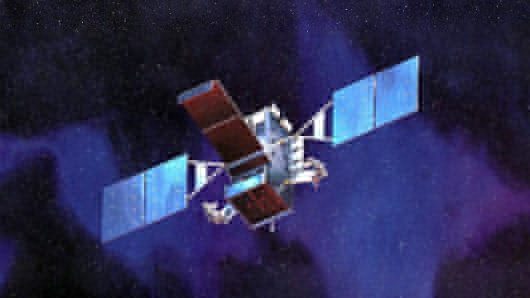Lockheed Martin has completed a major milestone for the U.S. Air Force’s second Space Based Infrared System (SBIRS) geosynchronous satellite (GEO-2). The milestone, known as the Final Integrated System Test (FIST), verifies the spacecraft’s performance and functionality in preparation for delivery to the launch site.
SBIRS is delivering improved missile warning capabilities for the nation while simultaneously providing significant contributions to the military’s missile defense, technical intelligence and battlespace awareness mission areas.
Having conducted all system environmental testing and now with the completion of FIST, SBIRS GEO-2 is on schedule to be available for launch as early as July, 2012.
An official launch date will be determined by the Air Force based on launch range and booster availability. Once a launch date is identified, Lockheed Martin will perform final spacecraft component installations and conduct a final factory confidence test prior to delivering the satellite to Cape Canaveral Air Force Station, Fla., for launch.
“The lessons learned from SBIRS GEO-1 have allowed the joint government and industry team to perform the assembly, integration and test of GEO-2 in a more efficient manner,” said Lt Col. Jonathon Whitney, GEO-2 Space Vehicle Integration and Launch Branch Chief.
“We are looking forward to delivering the satellite for launch.”
“Leveraging the experience gained from GEO-1, we were able to streamline the GEO-2 test schedule and efficiently prepare this critical spacecraft for delivery,” said Julie Pecson, Lockheed Martin’s director of SBIRS Space Vehicle Products.
“We are focused on preparing this satellite for launch and driving even greater efficiency and affordability into building the next set of SBIRS satellites and hosted payloads.”
Lockheed Martin’s SBIRS contracts include four highly elliptical orbiting (HEO) payloads, four GEO satellites, and ground assets to receive, process, and disseminate the infrared mission data. HEO payloads and the first geosynchronous (GEO-1) satellite have already been launched, with GEO-2 scheduled for launch availability in July.
The SBIRS team is led by the Infrared Space Systems Directorate at the U.S. Air Force Space and Missile Systems Center. Lockheed Martin is the SBIRS prime contractor, Northrop Grumman is the payload integrator. Air Force Space Command operates the SBIRS system.











